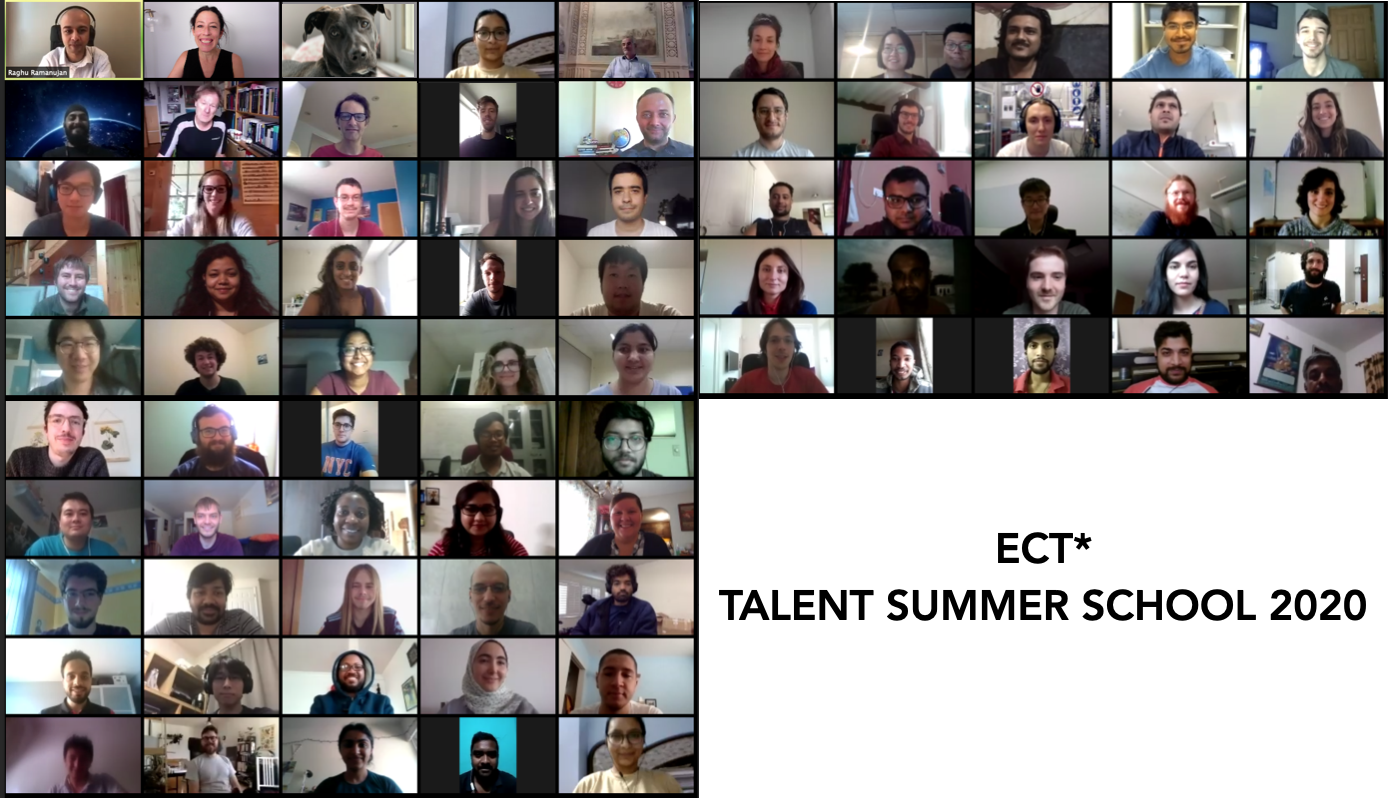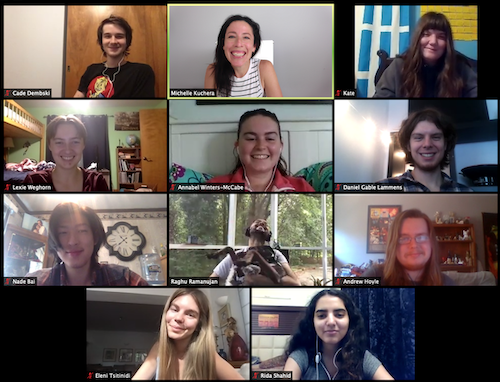The CLARIPHY-affiliated Algorithms for Learning in Physics Application (ALPhA) group at Davidson College completed a successful summer research program with nine undergraduate students from four institutions. Due to the pandemic, the research was virtual and students resided across the world for their work. The group collaborated with the detector, accelerator, and Active-Target Time Projection Chamber groups at the Facility for Rare Isotope Beams and the Theory Center at the Thomas Jefferson National Accelerator Facility. With laboratories required to stop beam for much of the summer due to the pandemic, increased focus turned towards computational methods, allowing the group to make significant progress over the course of the summer.
Research Highlights
Accelerator Physics In collaboration with the accelerator physics group at FRIB, ALPhA investigated reinforcement learning for automatic beam tuning.
QCD Theory In collaboration with the Theory Center at Jefferson Lab and Old Dominion University, ALPhA completed portions of an AI-based global analysis framework.
Dissemination

ALPhA presents to living rooms across the USA at the virtual APS Division of Nuclear Physics meeting.
As a testament to a productive summer within these unusual time, four summer students presented their work at the American Physical Society (APS) Division of Nuclear Physics (DNP) annual meeting and PI Michelle Kuchera represented ALPhA as a plenary speaker at the Low-Energy Community Meeting, and an invited speaker at the APS DNP meeting. In addition, five papers from prior ALPhA work were submitted this summer.
Posters at DNP
- Using Adversarial Networks to Generate Realistic Structure Function Surfaces Andrew Hoyle, et. al.
- Machine learning for improved resolution and fast predictions in a parallel-plate avalanche counter with optical readout (O-PPAC) Kate Roberts, et. al.
- Using neural networks to generate cross section data from theoretical QCD parameters Rida Shahid, et. al.
- Using machine learning techniques to interface between experimental cross sections and QCD theory parameters. Eleni Tsitinidi, et. al.
- Machine learning techniques for track analysis in Active-Target Time Projection Chamber data Lexie Weghorn, et. al.
Talks
- Machine learning in nuclear physics experiments. DNP. Michelle Kuchera
- Machine Learning in Low-Energy Nuclear Physics. LECM. Michelle Kuchera
Summer School

ECT* TALENT Summer School engaged a worldwide community in AI efforts in nuclear physics.
PIs Michelle and Raghu co-organized and co-taught the ECT* Nuclear TALENT course on Machine Learning and Data Analysis for Nuclear Physics. This course is for nuclear physics graduate students and grants course credit to those from European institutions. Due to the pandemic, the school was held remotely, with over 150 participants tuning in from all six inhabitable continents.

